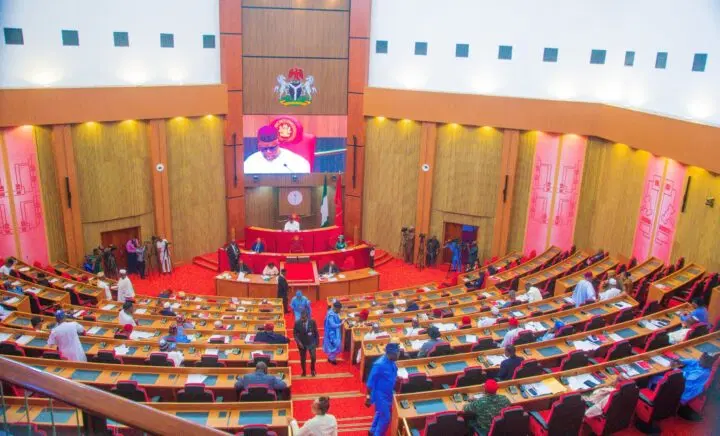A contentious debate has emerged between Northern political elites and the Federal Government over the proposed tax reform bill, which seeks to amend the Value Added Tax (VAT) Act.
The reform, centered on implementing the “derivation principle,” has sparked concerns about its potential impact on Nigeria’s revenue distribution.
The proposal aims to allocate VAT revenue based on where goods and services are consumed and where businesses generating the tax are headquartered. Northern leaders argue that this system could disproportionately benefit the South, where most consumption occurs and major corporations are based, leaving Northern states at a disadvantage.

Senator Kawu Samaila of Kano South expressed concerns, stating, “The challenges affecting economic development in the North go beyond mere tax reforms. We need meaningful dialogue to address these issues.”
Many Northern governors fear the reform would reduce their share of VAT revenue, further exacerbating the economic disparity between regions. Public affairs analyst Dr. Majeed Dahiru explained that their primary concern lies in the derivation model, which could result in some states receiving less revenue. However, he described the proposed system as one of Nigeria’s most progressive revenue allocation policies, potentially extending beyond VAT to other taxes.
Proponents of the reform argue that the current system is unfair, as states that restrict certain goods, like alcohol, still benefit from VAT generated by those products in other regions. Baba Yusuf, a policy analyst, criticized the Northern elite’s opposition as short-sighted, stating that the derivation principle could stimulate productivity and fairness.
“The transactional approach by Northern elites overlooks the long-term benefits of linking revenue to actual consumption. This rent-seeking mindset won’t drive the nation forward,” Yusuf remarked.
While the reform has its advocates, critics like Dr. Muda Yusuf, former Director General of the Lagos Chamber of Commerce and Industry, suggest that the opposition is more political than economic. He noted, “The South generates most of the VAT, so it’s natural for the North to oppose a system that reallocates revenue based on derivation. This issue must be managed carefully to avoid further regional tensions.”
The reform debate has also highlighted broader public distrust in government policies. Dr. Ibrahim Zikirullahi, Executive Director of the Resource Centre for Human Rights and Civic Education, argued that citizens view such reforms with skepticism due to a lack of transparency.
“From subsidy removal to increased taxes, Nigerians see reforms as measures to extract more without tangible benefits. People no longer trust the government’s intentions,” Zikirullahi said.
Despite the heated debate, calls for dialogue persist. Senator Samaila urged lawmakers to engage all stakeholders and address concerns to find a balanced solution. “This process requires discussion, persuasion, and understanding to reach a consensus that benefits all Nigerians,” he said.
The outcome of the tax reform bill will shape Nigeria’s economic future and could redefine its revenue-sharing framework. Whether the North and the Federal Government can find common ground remains uncertain, but the stakes in this debate highlight the urgent need for a more equitable fiscal policy.



